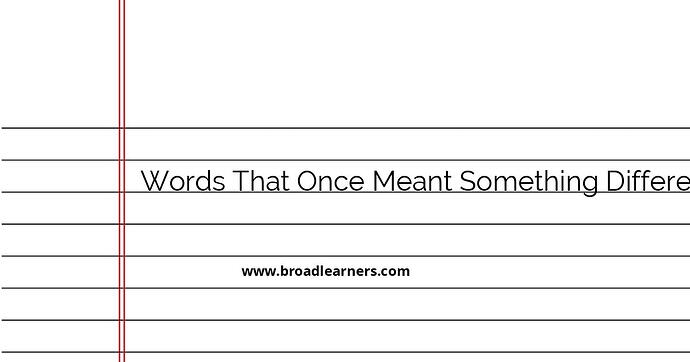Language is constantly evolving, and the meanings of words can change over time. It is fascinating to explore words that once had different meanings than they do today. Below are some examples of words that have undergone semantic shifts:
- Awful
- Girl
- Silly
- Villain
- Husband
Let's look at each word and its original meaning in more detail:
1. Awful
Today, 'awful' typically means something that is very bad or unpleasant. However, its original meaning was quite different. In the past, 'awful' meant 'worthy of awe' or 'inspiring reverential fear.'
Example:
The grandeur of the cathedral was so awe-inspiring that it filled the visitors with an awful sense of reverence.
2. Girl
The word 'girl' originally referred to a young person of either sex, not specifically a female child as it does today. It was a gender-neutral term for a young individual.
Example:
In medieval times, 'girl' was used to describe any young person, regardless of their gender.
3. Silly
'Silly' now means lacking in good sense, or foolish. However, its earlier meaning conveyed something blessed or happy. It shifted over time to its current usage.
Example:
The village celebrated the silly season, a time of joy and merriment.
4. Villain
In contemporary usage, a 'villain' is a wicked or evil person. But historically, a 'villain' simply referred to a person of humble birth or a peasant.
Example:
The knight rescued the 'villain' from the bandits, unaware of his true identity.
5. Husband
Today, a 'husband' is a male partner in a marriage. However, in Old English, 'husband' referred to the master of a household, regardless of gender.
Example:
The 'husband' of the manor oversaw the daily affairs of the estate with efficiency.
These examples demonstrate how the meanings of words can shift over time, reflecting changes in society, culture, and language usage.
Did I miss anything? Respond below
